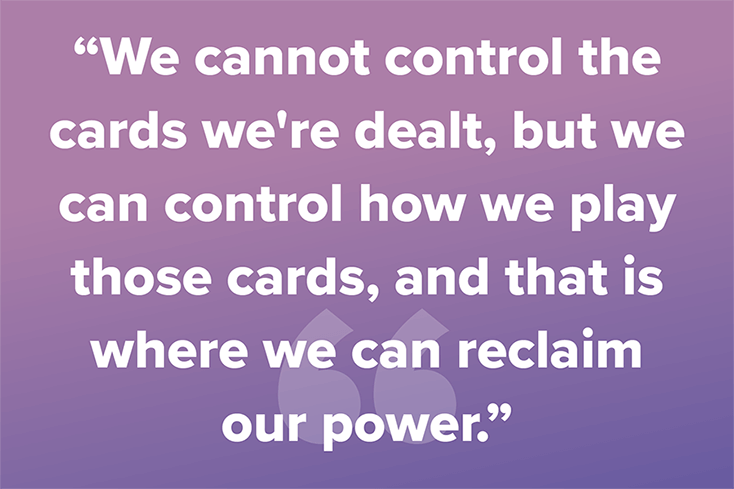September 02, 2021
By Elisabeth Barber

Suicide is the second leading cause of death among people ages 10-34 and the tenth leading cause of death overall in the U.S. On April 23, 2013, my father became another statistic when he died by suicide.
I had just turned 18, and was pregnant with my first child, when my life flipped upside down. I had no idea where to turn, and I became consumed by unanswered questions about my father’s death. In the following years, my denial about his suicide overtook my life. My mental health deteriorated rapidly, and this frightening decline was compounded by a dangerous home situation.
A couple of years after my father's passing, my ex-husband became belligerent one night and attacked me, squeezing me by the neck. I could slowly feel the life leaving my body. I survived, but not without scars; in addition to the existing anguish surrounding the loss of my father, I suffered from nightmares and, eventually, insomnia because I hated what I would see when I closed my eyes.
My situation felt so unmanageable that I even saw myself walking in my father’s footsteps. After recognizing how bad things had become, I knew it was time to get serious about my own mental health. I refused to leave my children with broken hearts and an emptiness that could take a lifetime to fill.
As I embarked on my own recovery, I decided to be proactive. I dedicated my time to understanding my trauma, raising awareness about mental health conditions and promoting suicide prevention initiatives. This work — and the road to recovery — is not easy; I have been diagnosed with bipolar disorder, post-traumatic stress disorder, obsessive compulsive disorder and a severe panic disorder. I live in constant fear of suddenly losing someone dear to me, largely due to the abandonment I feel from the loss of my father.
Despite these challenges, I have taken control of my life. I have also taken away an important lesson that I want to share: you are not a victim of your circumstances; you are a survivor. You are not alone; you are not a lost cause — and there is help available.
We cannot control the cards we're dealt, but we can control how we play those cards, and that is where we can reclaim our power. We can hear each other’s stories, we can combat stigma and misinformation, and we can publicize resources for those who are struggling. Perhaps we can all be the people we needed when we were younger.
Submit To The NAMI Blog
We’re always accepting submissions to the NAMI Blog! We feature the latest research, stories of recovery, ways to end stigma and strategies for living well with mental illness. Most importantly: We feature your voices.
LEARN MORE